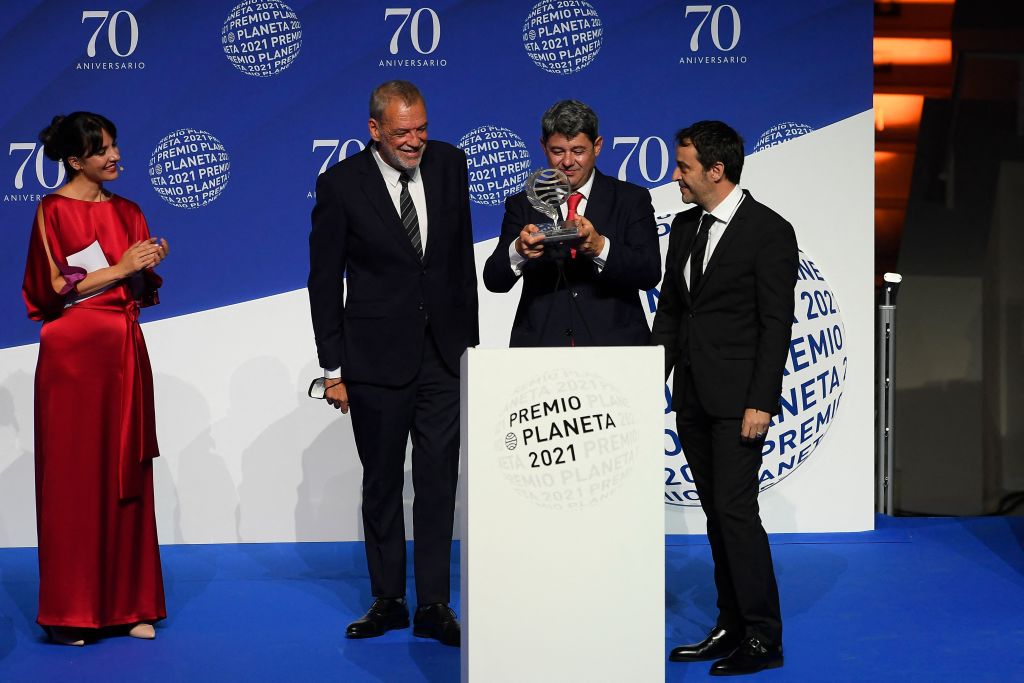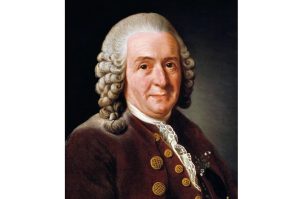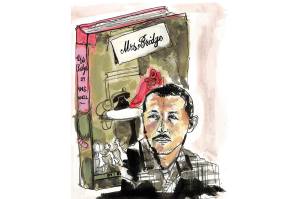When Carmen Mola won Spain’s Planeta literary prize for her crime thriller, The Beast, it was widely assumed that she was a female professor with a hardboiled literary style. Think again, mis amigas. Mola was the pseudonymous literary creation of three men: Jorge Diaz, Antonio Mercero and Agustin Martinez. The three scriptwriters smirkingly accepted the million-euro prize at a ceremony in October, and the literary world, home of uppity puritans and shrill wokesters, immediately found itself enmeshed in a scandal highlighting issues relating to authenticity and authorial freedom.
The rift between those who self-define merely as writers — a quaint thought these days — and the activist types who’ve increasingly grabbed hold of the world of letters has been laid bare by the scandal, bringing to the forefront the only writerly question that has ever mattered: can authors write whatever they want? To the endangered species known as the true writer, the answer to the question is an obvious and resounding “yes,” but to activists disguising themselves as literary curators whose only concern is “representation,” the answer is a purposefully nebulous “it depends.”
To understand the current state of the woke literary world and how publishing decisions get made, one only has to grasp the reasoning behind the literary curator’s answer: a writer can write whatever he or she wants so long as he or she is a representative of the group they’re writing about. To the activist, representation and authenticity are one and the same, which precludes the possibility of a non-representative writing authentically about a group of which he is not a member. This kind of thinking is unliterary bullshit, which explains why mainstream literary publishers pump out nothing but predictable tripe.
The true writer, on the other hand, understands that authenticity only matters insofar as an author’s vision comes together on the page and creates what John Gardner called the “fictive dream,” which essentially means that a reader is pulled into a dream state in which the fictional reality of the novel overtakes physical reality. When you lose yourself in a book, you’ve fallen under the pleasurable spell of the fictive dream: the only authentic reading experience.
To the delight of the woke literati, Carmen Mola’s writing was authentic in both the representational and fictional senses, but as soon as it came to light that she was not a woman but a triumvirate, the activists proceeded to negate the authenticity not only of The Beast, but of her entire catalog. Even before winning the prestigious Planeta prize, Mola was a well-known writer of gritty crime thrillers starring a female police inspector, which is to say that the three amigos had long been creating female characters so authentic that no one was the wiser until they willingly came forward. The activists only feel duped because they mistakenly prized representational authenticity over the fictional.
The pre-woke literary world considered authorial freedom sacrosanct. Granting an author total freedom to inhabit the psyche of any character he pleased allowed Gustave Flaubert to create Emma Bovary, perhaps the single greatest female literary character to date. If Flaubert were writing today, he’d have to contend with the battalion of woke ladies who run publishing, and his great novel, due to its lack of proper representation, wouldn’t see the light of day. As the publishing world transforms from a boys’ club to a Brooklyn girl gang — 80 percent of New York City editors are women — calls for representation have increased, which, ironically, has certainly played a role in more men taking up female pseudonyms, à la Elena Ferrante.
It is an open secret that Domenico Starnone, an Italian novelist with 150 books to his name, is behind the Ferrante phenomenon, with the help of his wife, the literary translator Anita Raja. Unknown outside of his hometown of Naples, Starnone, certainly aware of the growing feminization of the literary world, created a fictional universe engineered for maximum popularity among the elite young women who purchase books at high rates and crave the foreign spice and palatable grittiness offered by the Ferrante novels.
Female literary stardom has made him a very rich man. If female editors and agents are dominating publishing, thus promoting more books by women, it shouldn’t be a surprise that some men with literary dreams will take on a flowery female nom de plume. If actual fictional authenticity had never gone out of style, this literary gender-bending would never have taken off.
The battle over what constitutes worthy representation is also being waged across racial lines. H.G. Carrillo, a celebrated Cuban-American writer, died of Covid complications in April 2020. Shortly after his death, it was revealed that he was not Cuban but an African American born and raised in Detroit. Hispanic and Caucasian fans alike of his acclaimed novel Loosing My Espanish were forced to confront his new legacy and answer the following question: was the Cuban-American diasporic novel they’d deemed authentic when Carrillo was Cuban still authentic now that he was an African American?
One can only speculate as to why Carrillo, whose real name was Herman Glenn Carroll, chose to construct an Afro-Cuban persona. When the story broke, unlike some of my fellow writers who felt betrayed, I had a good laugh and thought “Boy, that was an impressive literary creation if I’ve ever seen one.” As an authentic Cuban American, I wasn’t insulted that Carrillo — I’ll call him by his pen name; he certainly earned it — made his name off an illegitimate Cuban persona, because when it comes to fiction, the only legitimacy that matters is the one that is earned, or not earned, on the page.
As a fiction writer myself, I can’t help but tip my hat to him. If writing a novel is impressive, fictionalizing your life in the name of literary stardom is the stuff of legend.
This article was originally published in The Spectator’s January 2022 World edition.


















